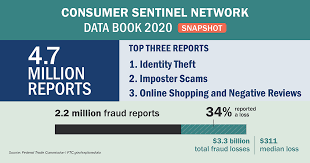AARP Hearing Center
Did you know that someone’s identity gets stolen every two seconds? The AARP Fraud Watch Network provides you with tips and resources to help you spot and avoid identity theft and fraud so you can protect yourself and your family. Our watchdog alerts will keep you up to date on con artists’ latest tricks. It’s free of charge for everyone: AARP members, non-members, and people of all ages. Be a fraud fighter! If you can spot a scam, you can stop a scam. Report scams to local law enforcement. Contact the AARP Fraud Watch Network at www.aarp.org/fraudwatchnetwork for more information on fraud prevention.
The AARP Fraud Watch Network is:
- An Educator: Get real-time alerts about the latest scams, tips on how to spot them, and the inside scoop on how con artists think so you can outsmart them before they strike.
- A Watchdog: Our nationwide scam tracking map gives you access to a network of people who've spotted scams and the opportunity to pass along your own experiences, so together we can beat con artists at their own game.
- A Resource: Get connected to a real live person trained in how to avoid fraud and advise you if you or a loved one has been scammed by calling our fraud hotline or attending a forum in your community.
- Free for Everyone: Anyone, of any age, can access our resources at no cost.

SCAM ALERT #1: NATIONAL CONSUMER PROTECTION WEEK
It’s National Consumer Protection Week —and while AARP is focused on protecting consumers year-round – this is a good time to highlight key tips to keep you safe.
Never give out personal or financial information over the phone or internet – especially if you don’t know the person on the other end. Be careful of what links you click on or what numbers you call back. If something seems to be good to be true it is. Lastly, be your own detective by using trusted resources to determine if something is a scam before responding.
One great resource is the Federal Trade Commission and its website, www.consumer.ftc.gov. It has resources to help protect yourself from scams and fraud and ID theft as well as tips on how to maximize your security online.

SCAM ALERT #2: SORTING FACT FROM FICTION WITH VACCINES
At the start of the pandemic, scammers hawked fake cures, treatments and vaccines. Now that vaccines are available, scammers are making bogus offers to move you to the front of the line for getting your vaccine – for a fee. Some are even setting up fake vaccine distribution sites. Unfortunately, this means that consumers looking for a vaccine appointment have to sort through fake and legitimate information in search for a shot – a process that can be confusing and dangerous.
With thousands of localities taking their own approach to vaccine distribution, it’s important to follow guidance provided by local public health officials and trusted healthcare providers. When signing up for your vaccine, find out how you will be contacted for any follow-up information or guidance.

SCAM ALERT #3: DEBT RELIEF SCAMS
COVID-19 and the economic downturn have put millions of Americans in financial peril. For most people, one of the first steps to getting back on their feet is getting rid of debt. Enter the con artist.
Shady companies will claim they can remove bankruptcies, liens and bad loans from your record, or even erase a bad credit history completely, helping you start over with a new credit identity. All you have to do is pay an up-front fee.
To avoid falling victim to these scams it’s important to remember that no one can remove bad information from your credit report if it is correct and timely. Things like bankruptcy or significant debt can stay on your credit record for up to 10 years. When looking for legitimate help with managing debt, avoid anyone who promises they can erase your debt history, increase your credit score or asks for an advance payment.

SCAM ALERT #4: CONSUMER SENTINEL REPORT
The numbers are in. The Federal Trade Commission released its report of fraud complaints from last year, and it was historically high, due in large part to COVID and the economic downturn. Criminals thrive in times of confusion and 2020 was the perfect storm. Staying on top of COVID related scams was a never-ending game of whack-a-mole for consumers, and the problem hasn’t gone away.
Reported losses topped $3.3 billion – an increase of around $1.5 billion over the previous year. The top scams were identity theft, impostor scams and online shopping scams. Most of these same scams are still active in 2021, which is why it’s important to avoid answering calls from unknown phone numbers or clicking on links from texts or emails from suspicious or unknown senders. And as long as COVID remains a challenge, beware of offers for miracle cure or a shortcut to a vaccine.
Be a fraud fighter! If you can spot a scam, you can stop a scam.
Report scams to local law enforcement. For help from AARP, call 1-877-908-3360 or visit the AARP Fraud Watch Network at www.aarp.org/fraudwatchnetwork.































































